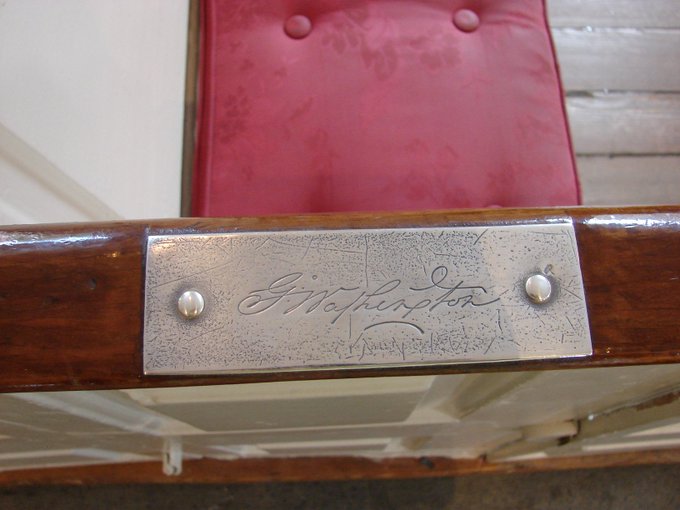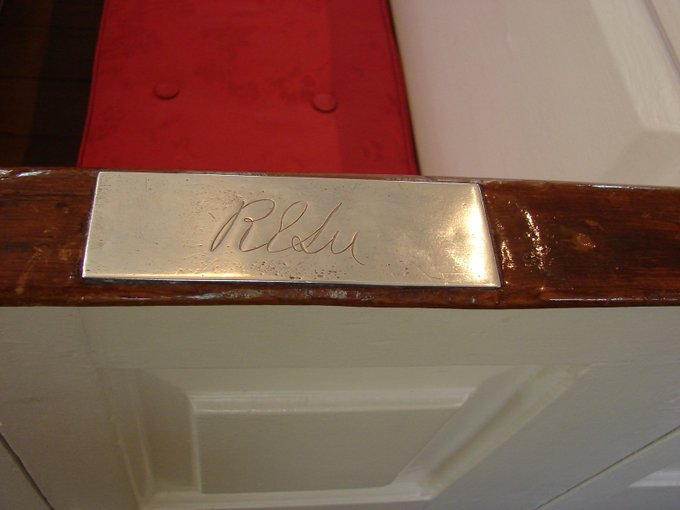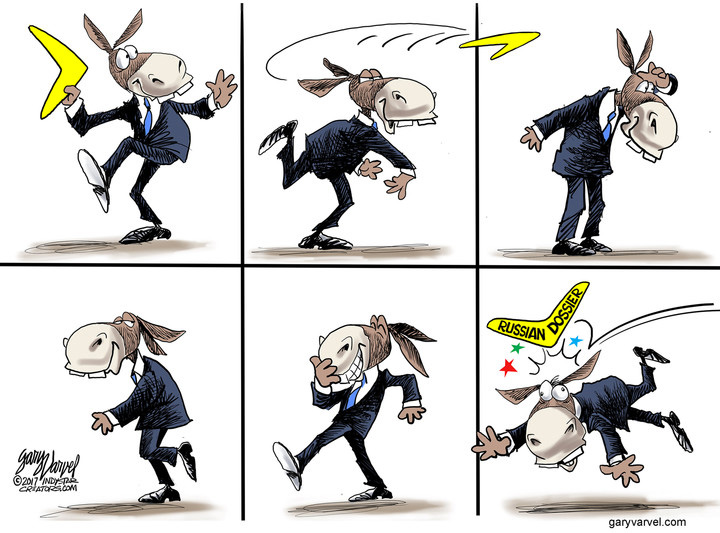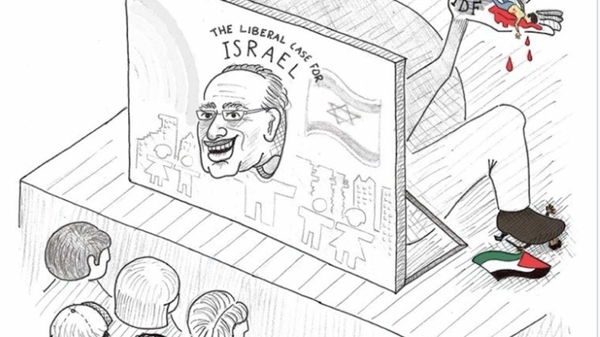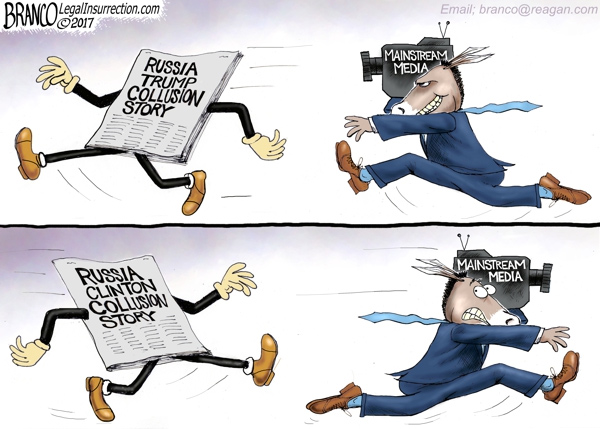The former FBI directors tend to investigate Republicans far more zealously than Democrats and come up empty. Is there a reason?
By Peter Berkowitz
The Wall Street Journal
October 23, 2017
News broke last week about possible Russian wrongdoing in the U.S., and it didn’t involve the Trump campaign.
l
The FBI kept that information from Congress and the l, the Hill reported, even as Hillary Clinton’s State Department in 2010 approved a deal that transferred control of more than 20% of America’s uranium supply to a Russian company. The Hill also reported the FBI had documents showing that during this period Russia engineered the transmission of millions of dollars to the Clinton Foundation.
The FBI director at the time: Robert Mueller, now special counsel in charge of investigating “Russian interference with the 2016 presidential election and related matters.” The revelations can only heighten anxieties about Mr. Mueller, the FBI and the rule of law.
The special counsel’s open-ended mandate covers not only “any links and/or coordination between the Russian government and individuals associated with the campaign of President Donald Trump” but also “any matters that arose or may arise directly from the investigation.”
Because Mr. Mueller has interpreted his mandate expansively, his effort may become the most politically disruptive federal investigation of our young century—more than the FBI’s investigation of Mrs. Clinton’s private email server and mishandling of classified information, more than Special Counsel Patrick Fitzgerald’s investigation into the 2003 disclosure of CIA employee Valerie Plame’s identity.
All three investigations have one important characteristic in common: James Comey, Mr. Mueller’s successor as FBI director, played a dubious role in each.
In December 2003, after Attorney General John Ashcroft recused himself from the Plame matter, then-Deputy Attorney General Comey named Mr. Fitzgerald—a close friend who was godfather to one of Mr. Comey’s children—as special counsel to head the Justice Department’s “investigation into the alleged unauthorized disclosure” of Ms. Plame’s employment.
Unknown to the public then, and still not widely known, that potential crime had already been solved. By early fall 2003, the CIA had determined that revealing Ms. Plame’s identity caused no injury to national security, while the FBI knew it was not a White House official—as many Democrats and liberal pundits ardently believed—but rather Deputy Secretary of State Richard Armitage who was columnist Robert Novak’s source for the original Plame story.
Mr. Fitzgerald declined to prosecute Mr. Armitage, but he played hardball with the Bush White House. Over several years, Mr. Fitzgerald inflicted severe damage by feeding the false accusation that the president had lied the nation into the Iraq war.
The only criminal charges he prosecuted were generated by his investigation. He won a 2007 conviction of I. Lewis “Scooter” Libby, former chief of staff to Vice President Dick Cheney, for obstruction of justice, false statements and perjury.
The conviction was based on small inconsistencies Mr. Fitzgerald discovered in (or created from) more than 20 hours of Mr. Libby’s FBI interrogation and grand-jury testimony. Star prosecution witness Judith Miller wrote in her 2015 memoir that Mr. Fitzgerald had withheld crucial information and manipulated her memory, inducing her to testify falsely against Mr. Libby.
In contrast, then-FBI Director Comey played softball with the 2015-16 Hillary Clinton investigation. Despite the gravity of the matter—military service members can be court-martialed and discharged for sending classified information on nonsecure systems—Mr. Comey mostly avoided issuing subpoenas and cooperated with the Obama Justice Department in obscuring the investigation’s criminal character.
He permitted Mrs. Clinton and her team to destroy evidence and granted generous immunity deals to her advisers. He drafted a statement exonerating Mrs. Clinton months before the FBI interviewed her. And his FBI neither recorded the interview nor compelled her to answer questions under oath.
In addition, in a July 2016 press conference, Mr. Comey usurped the authority of Justice Department prosecutors by publicly exonerating Mrs. Clinton. In the process, he confused the pertinent legal issue by asserting she did not intend to violate the law. But intent wasn’t a necessary condition for a crime. Federal law criminalizes “gross negligence” in mishandling classified information. By Mr. Comey’s own account, Mrs. Clinton had been “extremely careless.”
With Mr. Trump, by contrast, Mr. Comey is playing hardball even after leaving government. In May, shortly after President Trump fired him, Mr. Comey—possibly in conflict with FBI policy—leaked notes of an Oval Office meeting with the president. His purpose, Mr. Comey publicly acknowledged, was to “prompt the appointment of a special counsel.”
Mr. Mueller is playing hardball too. Unlike the Clinton investigation into narrowly defined allegations, his mandate authorizes pursuit of unspecified crimes. That invites casting a wide net, which Mr. Mueller has done, exploring conduct that long predated the 2016 presidential campaign.
He has assembled a huge team that includes, in addition to FBI agents, 16 seasoned prosecutors, at least seven of whom have contributed money to Democratic candidates.
He might have extended his investigation to Mr. Trump’s business interests. And he is working with agents from the Internal Revenue Service’s criminal investigation unit, raising the possibility that he has obtained Mr. Trump’s tax returns.
Mr. Mueller has adopted scorched-earth tactics in pursuit of Paul Manafort, who ran Trump’s presidential campaign from June to August 2016. The special counsel’s team has reached back more than a decade into Mr. Manafort’s financial affairs and conducted a predawn, guns-drawn raid on his home on a day he was scheduled to testify before Congress as a cooperating witness.
One crucial difference distinguishes the probe of Mrs. Clinton from the two Comey-instigated special-counsel investigations of Republican administrations. Mr. Fitzgerald’s multiyear investigation of the Bush administration and Mr. Mueller’s ever-widening scrutiny of the Trump campaign exhibit a tenacious and nearly unconstrained search for persons and crimes to prosecute. In contrast, Mr. Comey’s investigation of Mrs. Clinton reflects a determination not to prosecute systematic and obvious unlawful conduct.
Both excesses threaten the rule of law—but the dogged search for persons and crimes to prosecute poses the graver threat to constitutional government.
Mr. Berkowitz is a senior fellow at the Hoover Institution, Stanford University.

